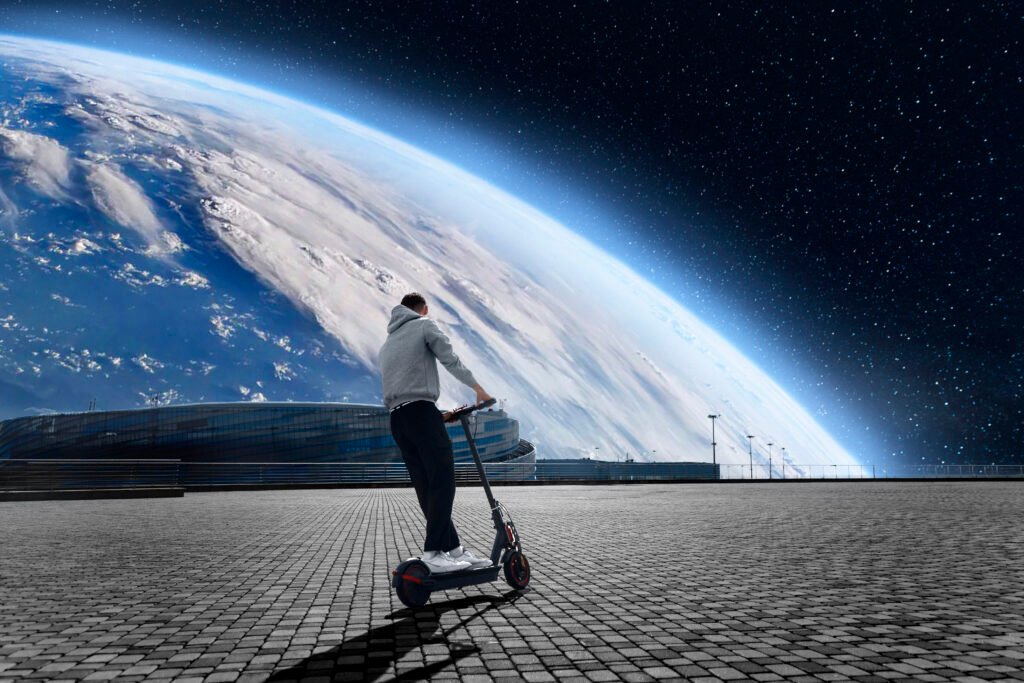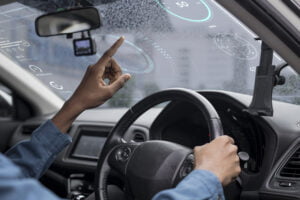Artificial Intelligence (AI) has become one of the driving forces behind advancements in various industries, and space exploration is no exception. The integration of AI technologies in space missions has revolutionized the way we explore the cosmos, allowing us to delve deeper into the unknown and uncover the secrets of the universe.
In this article, we will delve into the role of AI in space exploration, the benefits it brings, the challenges it presents, and the ethical considerations that arise. We will also explore some examples of AI applications in space exploration and discuss how AI technologies are shaping the future of this awe-inspiring field.
Introduction to AI in Space Exploration
Space exploration has always been a frontier that pushes the boundaries of human knowledge and capabilities. Through the use of AI, we can enhance the efficiency, accuracy, and autonomy of space missions. AI systems are designed to mimic human intelligence, enabling them to process vast amounts of data, make informed decisions, and adapt to changing conditions. By leveraging AI technologies, space agencies, and organizations can overcome the limitations of human capabilities and explore the vastness of space with greater precision and efficiency.
The Role of AI in Space Missions
AI plays a crucial role in space missions by providing intelligent systems that assist in various aspects of exploration. One key area where AI excels is in data analysis. Space missions generate massive amounts of data, and AI algorithms can sift through this data to identify patterns, anomalies, and potential discoveries that may otherwise go unnoticed.
AI-powered algorithms can analyze images, spectroscopic data, and other forms of data collected from space telescopes and satellites, helping scientists gain a deeper understanding of celestial bodies and phenomena.
Additionally, AI enables autonomous decision-making, reducing the dependence on ground control and enabling space missions to operate more independently. AI systems can monitor spacecraft health, detect and respond to anomalies, and even make real-time adjustments to mission parameters. This level of autonomy is particularly valuable for long-duration missions, where communication delays make real-time decision-making impossible.
Benefits of Using AI in Space Exploration
The integration of AI technologies in space exploration offers numerous benefits. First and foremost, AI enables us to explore more efficiently and effectively. The ability to process and analyze vast amounts of data at high speeds allows scientists to make discoveries and gather insights faster than ever before. This not only accelerates the pace of scientific progress but also enables us to make more informed decisions about mission objectives and resource allocation.
Furthermore, AI enhances the safety and reliability of space missions. By leveraging AI-powered systems, we can detect and respond to anomalies and malfunctions in real time, mitigating potential risks and ensuring the well-being of astronauts and spacecraft. AI algorithms can also optimize mission trajectories, reducing fuel consumption and increasing mission success rates.
Another significant benefit of AI in space exploration is its ability to enable autonomous robotic missions. AI-powered rovers and landers can navigate treacherous terrain, collect and analyze samples, and even make scientific discoveries without human intervention. This not only expands our reach in space but also reduces the risks associated with manned missions.
Examples of AI Applications in Space Exploration
The application of AI in space exploration is vast and diverse. One notable example is the use of AI in the analysis of astronomical data. The Hubble Space Telescope, for instance, generates terabytes of images and spectroscopic data every year. AI algorithms can analyze these data to identify new celestial objects, classify stars and galaxies, and detect rare phenomena such as supernovae. This enables astronomers to expand our understanding of the universe and unravel its mysteries.
Another example is the use of AI in autonomous navigation. The Mars rovers, Spirit, Opportunity, and Curiosity, have all relied on AI algorithms to navigate the Martian terrain and make scientific discoveries. These rovers use AI-powered systems to analyze images, identify obstacles, and plan efficient routes, enabling them to explore the Red Planet with unprecedented autonomy.
Furthermore, AI is being used in the development of intelligent spacecraft. For example, NASA’s Deep Space 1 mission utilized AI algorithms to autonomously control the spacecraft’s trajectory and perform complex maneuvers. This mission paved the way for future autonomous missions, demonstrating the potential of AI in enabling spacecraft to navigate and explore space more efficiently.
Challenges and Limitations of AI in Space Exploration
While AI brings numerous benefits to space exploration, it also presents challenges and limitations. One of the main challenges is the reliability and robustness of AI systems in the harsh conditions of space. Cosmic radiation, extreme temperatures, and the vacuum of space can all affect the performance of AI hardware and software. Ensuring the resilience of AI systems against these conditions is crucial for the success of space missions.
Another challenge is the interpretability of AI algorithms. AI systems often make decisions based on complex patterns and correlations that are difficult for humans to understand. This lack of interpretability raises concerns about the transparency and accountability of AI-powered space missions. It is essential to develop methods and techniques that allow us to interpret and explain the decisions made by AI systems, ensuring that they align with our goals and values.
Furthermore, the integration of AI in space missions raises ethical considerations. For instance, AI-powered systems may be used to make decisions that involve potential risks to human life, such as autonomous spacecraft navigation or robotic exploration of hazardous environments. Ensuring the safety and ethical use of AI in space exploration requires careful consideration of the potential consequences and the establishment of robust ethical guidelines.
Ethical Considerations of AI in Space Exploration
The ethical considerations surrounding AI in space exploration are multifaceted. One aspect is the impact on human exploration. As AI technologies advance, there is a possibility that manned missions may be replaced by autonomous robotic missions. While this reduces the risks to human life, it also raises questions about the role of humans in space exploration and the value we place on human experiences and discoveries.
Another ethical consideration is the potential impact on extraterrestrial life. As we explore other celestial bodies, there is a chance that we may encounter microbial life or other forms of extraterrestrial organisms. The use of AI in space missions should be guided by principles that prioritize the protection and preservation of any potential extraterrestrial life, ensuring that our exploration does not inadvertently harm or contaminate these delicate ecosystems.
Additionally, there are concerns about the potential for AI systems to make biased or discriminatory decisions. AI algorithms learn from data, and if the training data is biased, it can lead to biased decisions.
In the context of space exploration, this raises concerns about the fairness and inclusivity of AI-powered missions. It is crucial to address these biases and ensure that AI systems are designed and trained to be unbiased and impartial.
AI Technologies Shaping the Future of Space Exploration
The integration of AI technologies in space exploration is opening up new possibilities for the future. One promising area is the use of AI in exoplanet research. AI algorithms can analyze data from space telescopes to identify and characterize exoplanets, potentially leading to the discovery of habitable worlds beyond our solar system. This could revolutionize our understanding of the universe and our place in it.
Furthermore, AI is being used to develop intelligent spacecraft that can repair and maintain themselves. By leveraging AI-powered systems, spacecraft can detect and diagnose faults, perform repairs, and optimize their performance. This level of autonomy could extend the lifespan of spacecraft, reduce the need for costly maintenance missions, and enable long-duration missions to distant destinations.
Another exciting development is the use of AI in space resource utilization. AI algorithms can analyze data from asteroids and other celestial bodies to identify valuable resources such as water, metals, and minerals. This opens up the possibility of mining these resources in space, reducing the dependence on Earth for critical supplies and paving the way for sustained human presence in space.
Conclusion
The integration of AI technologies in space exploration is transforming the way we explore the cosmos. AI enables us to process vast amounts of data, make informed decisions, and enhance the autonomy of space missions. The benefits of AI in space exploration are numerous, from accelerating scientific progress to improving mission safety and efficiency.
However, challenges and ethical considerations must be addressed to ensure the responsible and ethical use of AI in space missions. As AI technologies continue to advance, they hold the potential to unlock new frontiers and shape the future of space exploration.











